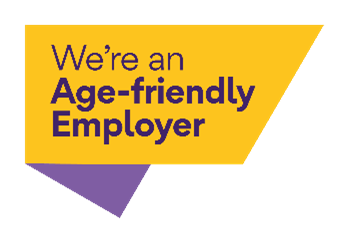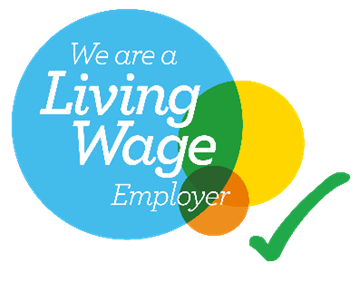Equality, Diversity & Inclusion
We are committed to embedding the principles of equality, diversity, and inclusion in everything that we do, both as a service provider and a local employer.
-
Legal background
Equality Act (2010)
The Equality Act (2010) strengthened existing anti-discrimination laws. It provides a single framework to protect certain groups from being treated less favourably than others because of their “protected characteristics”. The protected characteristics are:• Age
• Disability
• Race
• Sex
• Gender reassignment
• Marriage and civil partnership
• Pregnancy and maternity
• Religion and belief
• Sexual orientationAs a council, we go beyond this list and also consider the impacts that our decisions might have on other marginalised communities such as people with caring responsibilities, current and former armed services personnel, and residents' on lower incomes.
Public Sector Equality Duty
Section 149 of the Equality Act is the Public Sector Equality Duty (PSED). This places a duty on public bodies to have “due regard” to the need to:
• Eliminate unlawful discrimination, harassment, and victimisation.
• Advance equality of opportunity between people from different groups.
• Foster good relations between people from different groups.To help public bodies meet this general duty, we are also required to:
• Publish information annually to show compliance with the Equality Duty.
• Set and publish at least one measurable equality objective every four years.You can find more information on how we meet these duties in our annual EDI report. You can also read our current equality objectives below.
-
Equality Impact Assessments (EIAs)
An Equality Impact Assessment (EIA) is a way of systematically taking equal opportunities into consideration when making a decision. As a council, we have a standard template that helps to predict and mitigate any discrimination that may result from a change in a policy or service we provide before we make that decision. This process helps us to meet our legal duties outlined above.
Where can I find completed EIAs?
Completed EIAs are included in Committee Reports when a decision is being made. We also publish a list of EIAs completed each year as part of our annual EDI report.
If you have any questions about equality impact assessments or would like to read one in a different format, please contact the Policy Team on policy@winchester.gov.uk. -
Equality Framework for Local Government
We are committed to working towards Excellence on the LGA’s Equality Framework for Local Government (EFLG). We are currently self-assessing against the Achieving level. Progress against this target will be reported at regular intervals and highlighted in our annual report.
The framework helps us to meet and exceed our legal obligations – you can find out more about the modules and criteria on the Local Government Association website.
-
Our equality objectives
As a council, we are committed to equality of opportunity for all people regardless of their protected characteristics. We recognise and value all people in our community and we believe that equality is central to the provision of modern quality services.
In February 2025, we set the following equality objectives as part of our PSED duties:
1. Understanding and working with our communities: We will embed diversity in decision making processes, ensuring representation from all sections of our communities and making sure our decisions are based on good quality data. We will improve and develop our consultation and engagement processes and seek to inform and involve all sections of the community, but particularly disadvantaged and excluded groups, in the development of our policies and the services we provide.
2. Leadership, partnership and organisational commitment: We are committed to delivering effective leadership at every level and developing partnerships which prioritise equality, diversity and inclusion.
3. Responsive services and customer care: We are committed to enuring everyone can access our services and that any barriers are promptly identified and eliminated. Resources are directed to where residents need them most.
4. Diverse and engaged workforce: We recognise the value and significance of a diverse and inclusive workforce. We will take positive steps to promote equality in employment by developing a flexible, professional and skilled workforce that is representative of the communities that we serve.
-
Policies, strategies and reports
Gender pay gap:
We are required under the Equality Act (2010) to publish gender pay gap information relating to our employees. This is part of a strategy to eliminate the gap in pay between men and women that exists in the UK. You can find the current Gender Pay Gap report here.
Local EDI data:
As a council, it is important that we have a good understanding of the communities we serve so that we can better target our services to suit people’s needs. This is the reason that when you complete a consultation – such as an online survey – we might ask you questions about your age, gender, and ethnicity.
You can view information on the composition of our district here. Council staff use this information to make informed decisions and complete equality impact assessments.
Workforce profile:
We value and celebrate the diversity of our staff and seek to support a workforce that represents the communities we serve. We publish an annual workforce report to Audit and Governance committee which incudes information on equality and diversity.
Strategy:
The 'Equality, Diversity and Inclusion strategy for 2025-28 can be found linked on the side of this page
-
The council as an inclusive employer

We have made the Age-Friendly Employer pledge to recognise the importance and value of our older workers. We have committed to improving work for people in their 50s and 60s and taking necessary action to help them flourish in a multi-generational workplace. You can find out more here - Age-friendly Employer Pledge | Centre for Ageing Better (ageing-better.org.uk) 
We are a disability confident employer and guarantee to interview all disabled applicants who meet the minimum criteria of a vacancy. We recognise and value the benefits of employing disabled people across our organisation. 
We are an accredited Living Wage Employer with the Living Wage Foundation which means we are committed to paying our staff according to the cost of living.
